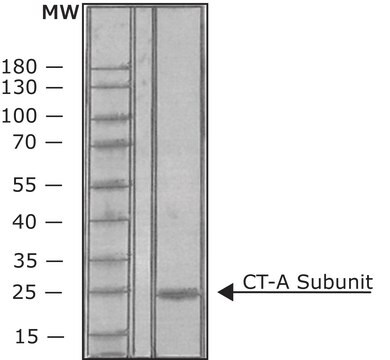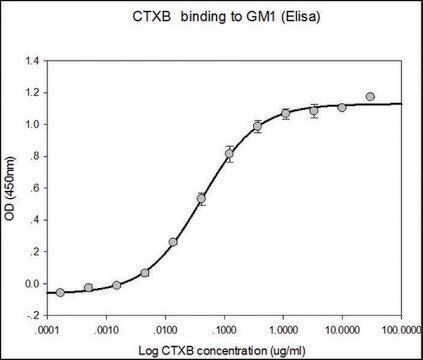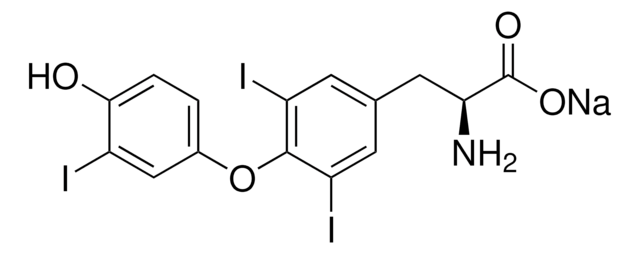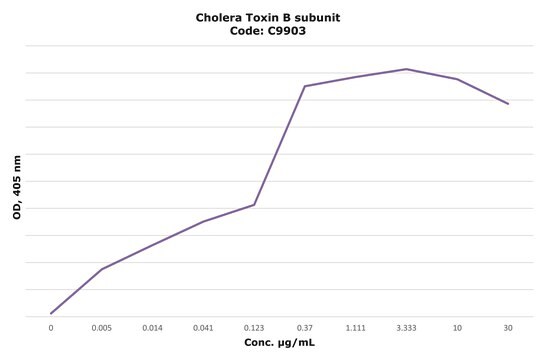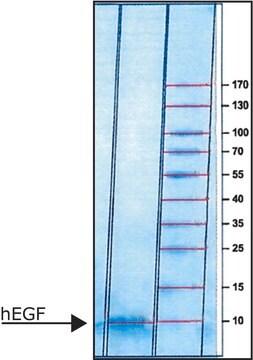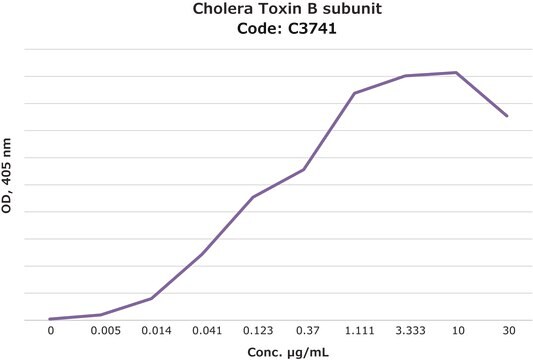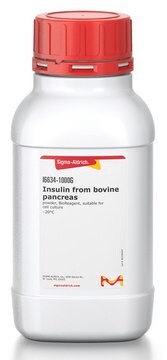227036
Cholera Toxin
from Vibrio cholerae, ≥95% (SDS-PAGE), solid, A-B type toxin, Calbiochem
Sinónimos:
Cholera Toxin, Vibrio cholerae, Type Inaba 569B, Azide Free
About This Item
Productos recomendados
product name
Cholera Toxin, Vibrio cholerae, Type Inaba 569B, Azide Free, Cholera toxin Inaba 569B, CAS 9012-63-9, has a single A subunit surrounded by five polypeptides chains of the B subunits. The A subunit catalyzes the ADP-ribosylation of the α-subunit of G-proteins.
Quality Level
assay
≥95% (SDS-PAGE)
form
solid
manufacturer/tradename
Calbiochem®
storage condition
do not freeze
shipped in
ambient
storage temp.
2-8°C
General description
Biochem/physiol Actions
α-subunit of G-proteins
Packaging
Warning
Physical form
Reconstitution
Analysis Note
Other Notes
Legal Information
signalword
Danger
hcodes
Hazard Classifications
Acute Tox. 1 Dermal - Acute Tox. 1 Oral - Skin Irrit. 2
Storage Class
6.1A - Combustible acute toxic Cat. 1 and 2 / very toxic hazardous materials
wgk_germany
WGK 3
Certificados de análisis (COA)
Busque Certificados de análisis (COA) introduciendo el número de lote del producto. Los números de lote se encuentran en la etiqueta del producto después de las palabras «Lot» o «Batch»
¿Ya tiene este producto?
Encuentre la documentación para los productos que ha comprado recientemente en la Biblioteca de documentos.
Los clientes también vieron
Nuestro equipo de científicos tiene experiencia en todas las áreas de investigación: Ciencias de la vida, Ciencia de los materiales, Síntesis química, Cromatografía, Analítica y muchas otras.
Póngase en contacto con el Servicio técnico

